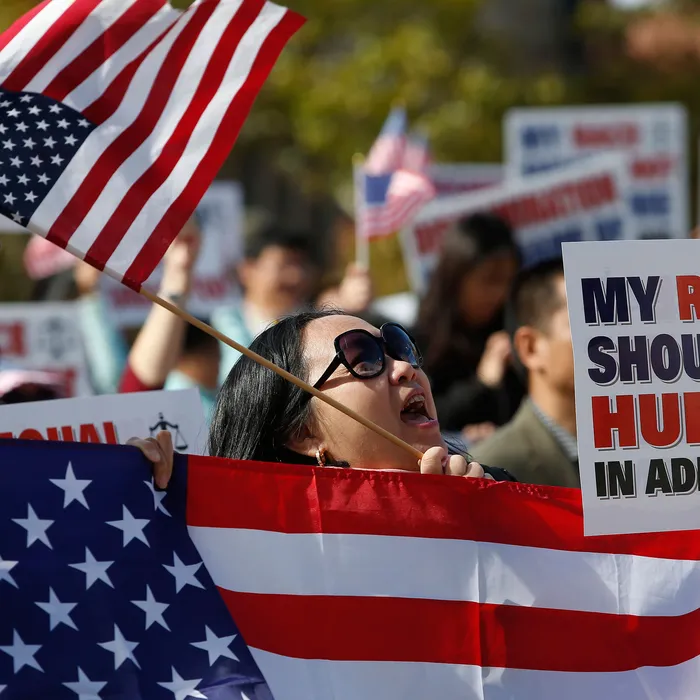
Harvard University had admitted a record number of Asian American students to its class of 2027, which has experts wary of considering the drop in admissions of most other minority groups. It comes as the Supreme Court continues deliberations on a lawsuit against Harvard alleging race-conscious admissions discriminate against white and Asian students.
In a breakdown of the incoming class at Harvard, 29.9% of admitted applicants are Asian American, making it a 2.1% jump from last year’s number.
“It’s been part of a long-term trend,” admissions Dean William R. Fitzsimmons told The Harvard Crimson. “The percentages have been going up steadily. It’s not a surprise.”
Julie Park, an associate professor at the University of Maryland who studies racial equity in high education, says there are several possible reasons for this. One reason could be an increase in Asian American legacy students, which favors children of Harvard alums.
“Race-conscious admissions can be very dynamic and institution-specific,” she told NBC News. “Under race-conscious admissions, Harvard has a very sizable Asian American class. … It’s just a natural byproduct that you’re just going to numerically have at Harvard unless they step away from legacy admissions, which I actually think they should.”
The Supreme Court is preparing a decision on Student for Fair Admission v Harvard. This lawsuit alleges the Ivy League university’s race-conscious admissions process discriminates against Asian applicants.
After the court heard the case, advocates feared the conservative majority might mean the end of affirmative action. Students of color at Harvard have spent months protesting and speaking out in favor of race-conscious admissions.
Losing that battle could put lower-income Asian American and Pacific Islander applicants at a disadvantage; Park said, as well as stunting students’ diverse educational experience.
What concerns experts is that, for the second year in a row at Harvard, Black and Latino admits dropped, comprising 15.3% and 11.3%. Native Hawaiian and Native American admissions are also down from last year, at 0.5% and 2%.
“While you have seen growth in the Asian American high school graduate population, it is nothing compared to the growth in the Latinx population,” Park said. “So, it’s really concerning and illuminating that you’re not seeing that similar uptick in admitted students among the Black and Latinx students. … That disparity points to some issues.”
Threats to affirmative action can harm students of color who get served and the services provided to them. Wil Del Pilar, senior vice president of The Education Trust, an organization working to fill gaps in educational inequity, said.
“The decision may come out and say you can’t use race as a factor in admissions,” he said. “So institutional actors may say, ‘OK, you can’t use race as a factor in awarding financial aid, or in creating student support groups or in targeting enrollment, or in targeting efforts at certain groups.”

Recent Comments